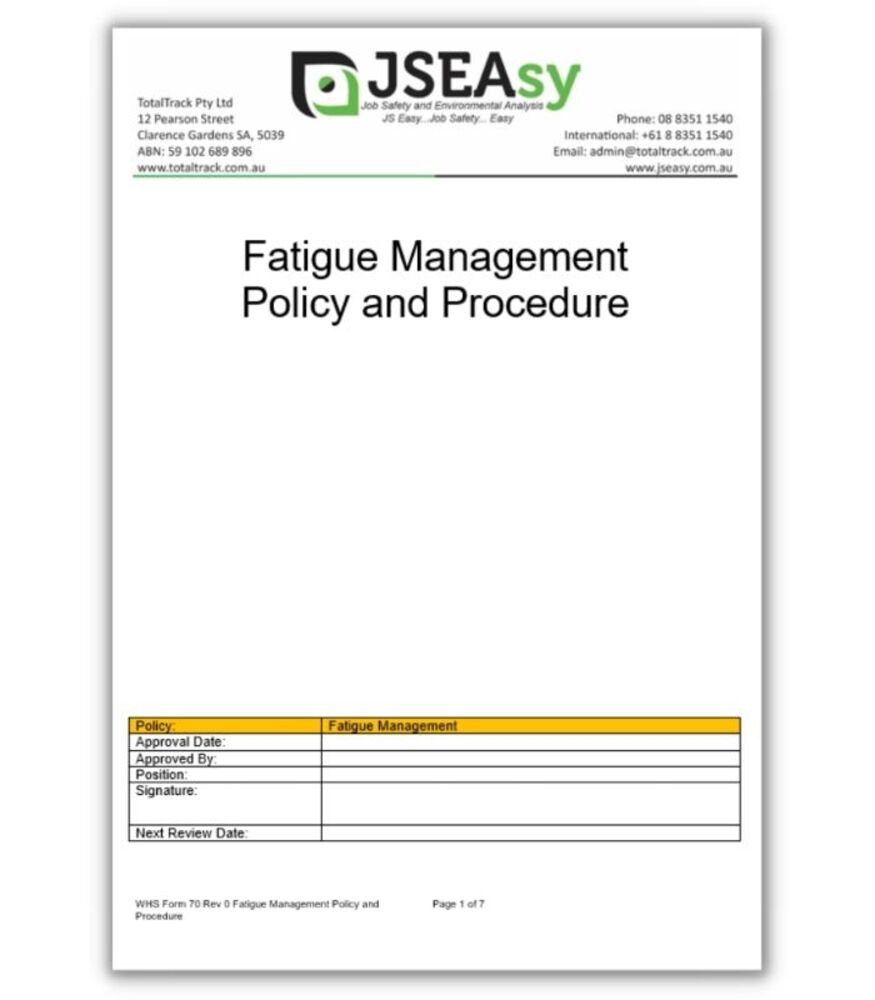The purpose of the policy is to provide guidance to manage risks associated with fatigue and improve safety.
This form is also included in the JSEAsy Software Premium version.
Implementing a Fatigue Management Policy and Procedure is crucial for several reasons:
Safety:
Fatigue significantly impairs cognitive functions, reaction times, and decision-making abilities, increasing the risk of accidents and injuries, particularly in high-risk environments such as construction sites, manufacturing facilities, transportation, and healthcare settings. A comprehensive fatigue management policy helps mitigate these risks by ensuring employees are adequately rested and alert while on duty.
Health and Well-being:
Chronic fatigue can have serious health consequences, including increased risk of cardiovascular diseases, obesity, depression, and decreased immune function. A fatigue management policy promotes employee well-being by establishing guidelines for adequate rest periods and promoting healthy work-life balance.
Productivity:
Fatigued employees are less productive and more prone to errors and reduced concentration. By managing fatigue effectively, organizations can optimize productivity levels and minimize costly mistakes, rework, and absenteeism.
Legal Compliance:
In many jurisdictions, employers have a legal obligation to provide a safe working environment for their employees. Failing to address fatigue-related risks could lead to legal liabilities, fines, and reputational damage. Implementing a fatigue management policy helps demonstrate compliance with relevant health and safety regulations.
Employee Engagement and Retention:
Employees are more likely to feel valued and supported by their organization when measures are in place to address their well-being and safety concerns. A fatigue management policy demonstrates a commitment to employee health and can contribute to higher levels of engagement, satisfaction, and retention.
Risk Management:
Fatigue-related incidents can have significant financial and reputational consequences for organizations. By proactively managing fatigue through policies and procedures, businesses can reduce the likelihood of accidents, injuries, and associated costs.
Industry Standards and Best Practices:
In many industries, there are specific standards and best practices related to fatigue management. Implementing a policy and procedure aligned with industry standards demonstrates a commitment to excellence and may be required for regulatory compliance or contractual obligations.
In summary, a Fatigue Management Policy and Procedure is essential for promoting safety, health, productivity, legal compliance, and employee well-being. By effectively managing fatigue, organizations can create a safer, healthier, and more productive work environment for their employees while reducing risks and liabilities.



